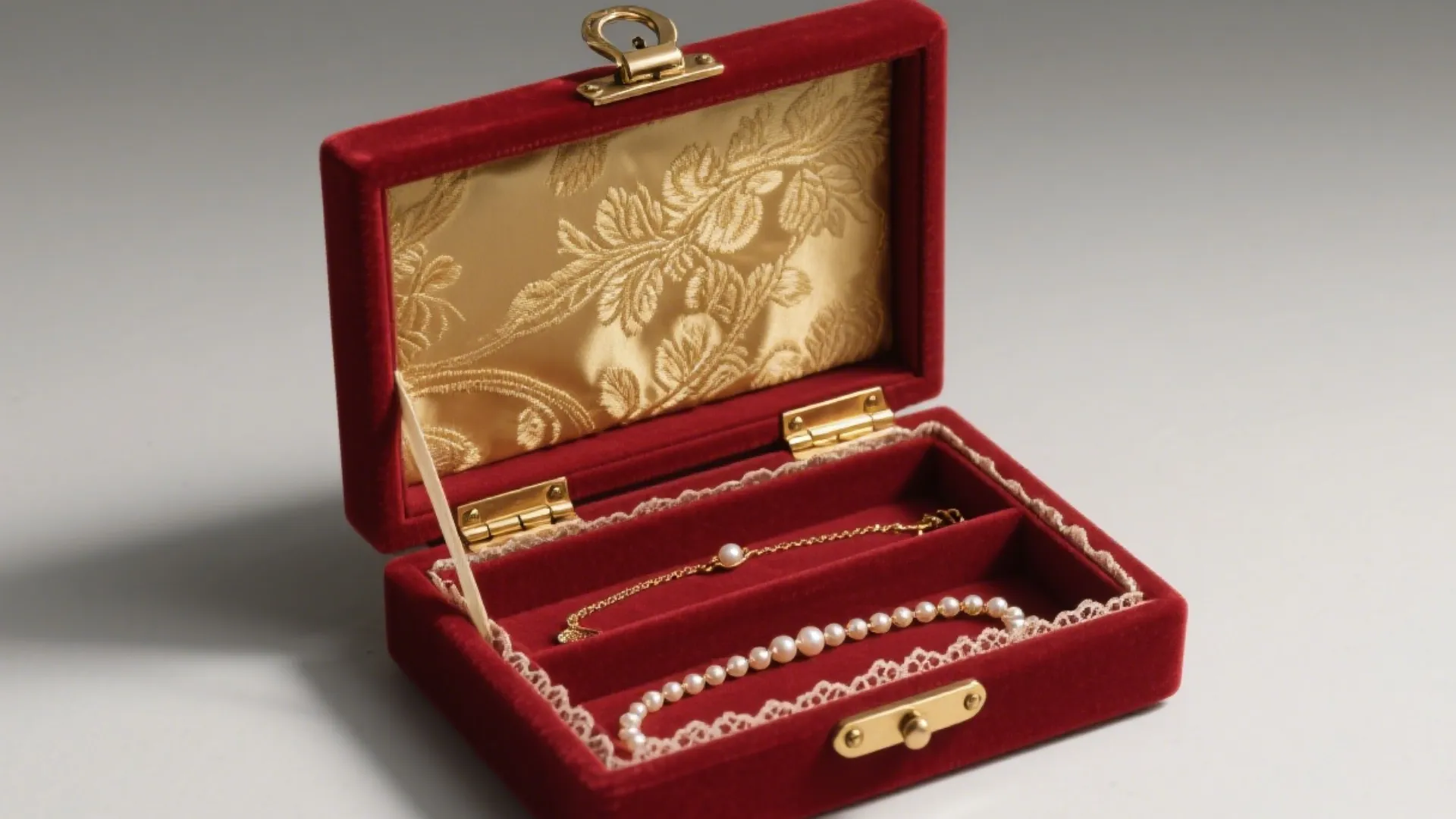
A jewelry box’s lid opening smoothly and closing with a satisfying click reflects craftsmanship at its finest. Yet, this refined experience hinges on a single, often overlooked component: the hinge. Selecting the ideal jewelry box hinge requires careful consideration of four critical factors: the size and weight of your box, your aesthetic preferences (including material and finish), the functional needs (such as lid support or a discreet appearance), and your level of installation expertise.
This comprehensive guide demystifies the process, helping you make an informed choice with confidence. We’ll introduce the most common hinge types—from traditional butt hinges to sleek concealed options—provide a straightforward checklist to streamline your decision-making, and walk you through a detailed, step-by-step installation process. Whether you’re a seasoned craftsperson or a DIY enthusiast, this resource ensures your jewelry box not only looks beautiful but functions flawlessly.
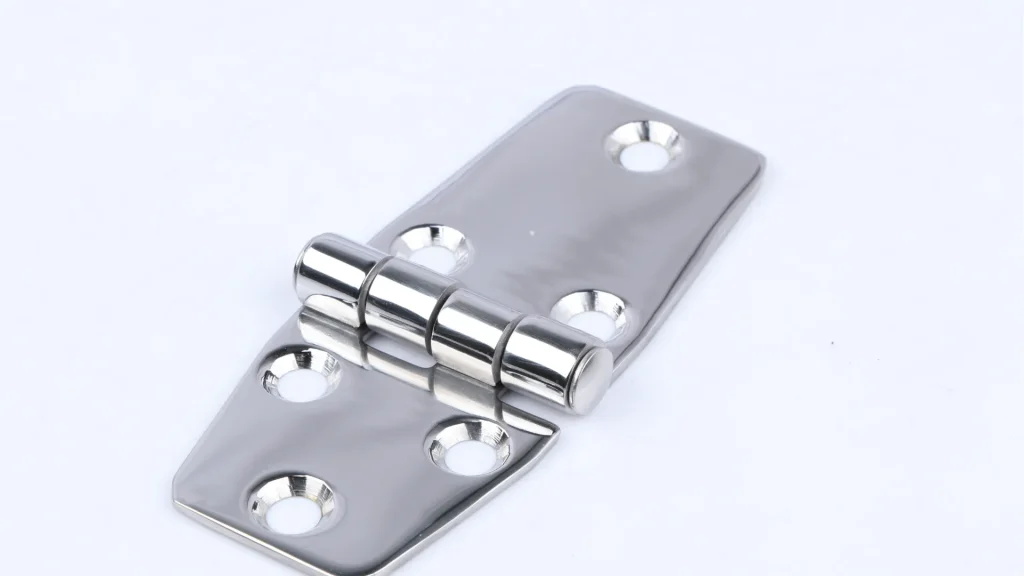
Before diving into technical details, it’s essential to recognize why hinges deserve your full attention. They are more than just hardware; they are silent ambassadors of your craftsmanship. The hinge you select influences user experience and leaves a lasting impression. A high-quality hinge not only functions smoothly but also complements your design, adding to the box’s perceived value and telling a story of quality before the lid is even lifted.
Hinges are integral to your jewelry box’s visual appeal. For example, a polished brass quadrant hinge on a rich mahogany exudes tradition and elegance. Conversely, a concealed Soss hinge on a sleek maple box communicates modern sophistication. The right hinge choice accentuates your woodwork, aligns with your style, and significantly boosts the perceived quality of your creation, often being the deciding factor that makes a piece look truly high-end.
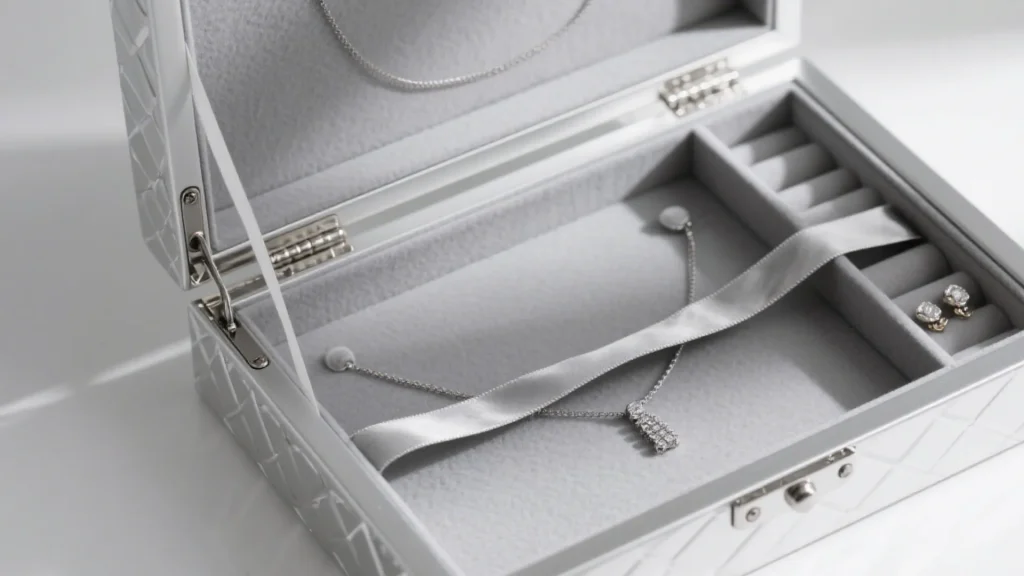
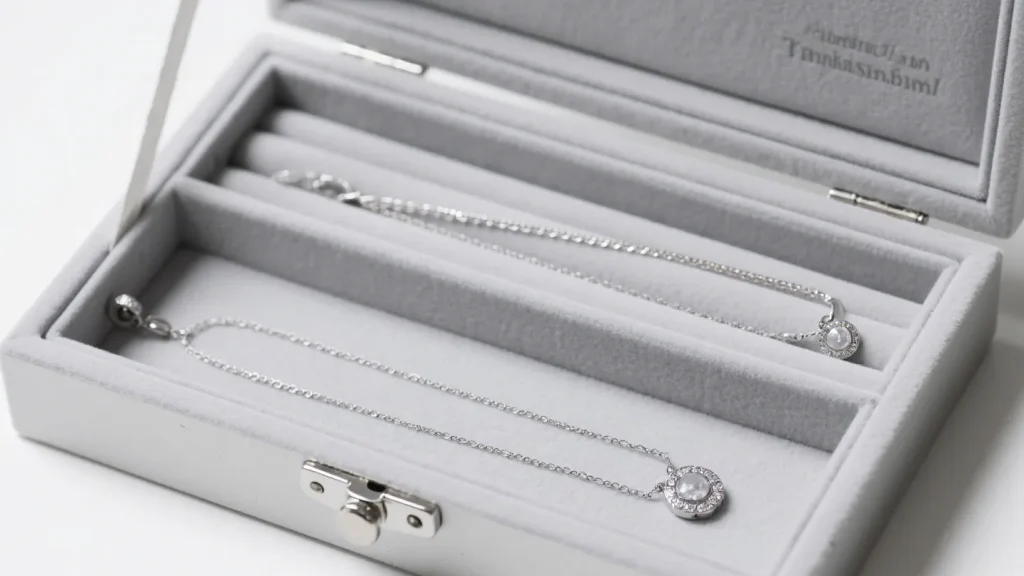
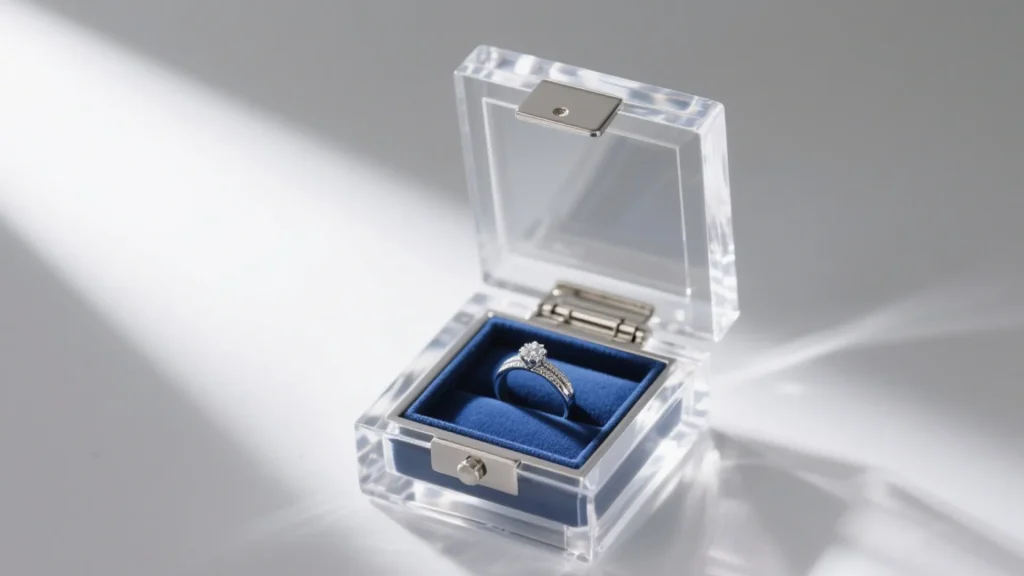
Imagine opening a jewelry box with a lid that glides smoothly, stays open at your desired angle, and closes softly with a satisfying click. This seamless experience hinges on selecting and installing the appropriate hinge. Conversely, misaligned or sticky lids can diminish the overall impression, regardless of the craftsmanship beneath. It’s the first and last physical interaction a user has with your box, making it a critical moment of truth.
For jewelry brands, consistent quality in hardware reflects your commitment to excellence. When customers open your packaging, the hinges serve as a subtle yet powerful signature of your brand’s attention to detail. Investing in high-quality hinges and ensuring uniformity across your product line demonstrates professionalism and builds trust. Partnering with a reliable packaging supplier can streamline this process, ensuring every box meets your standards.
The world of small hinges offers a variety of options, each suited to different styles and functions. Understanding these types helps you make informed choices that align with your design goals and technical skills.
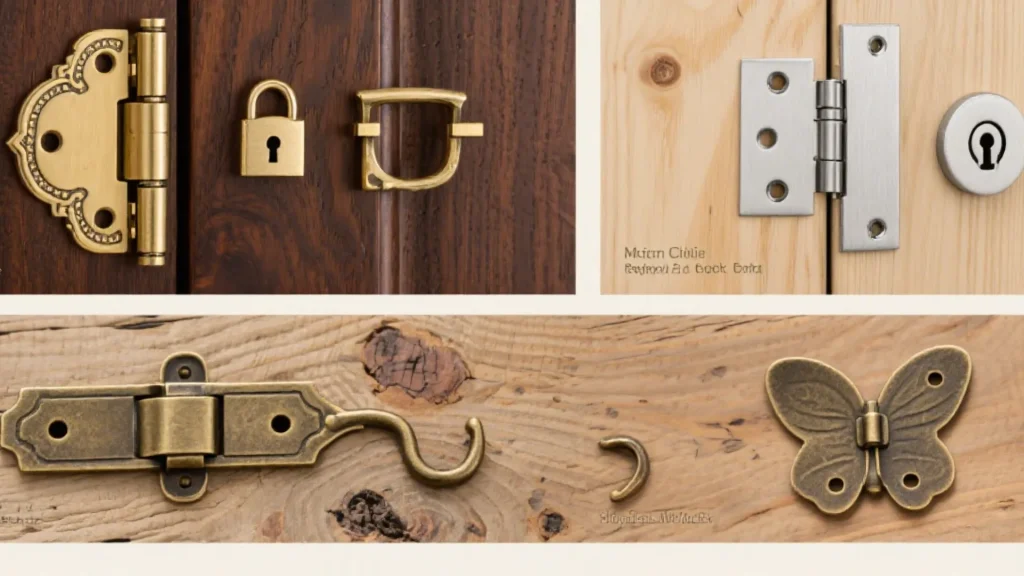
Butt hinges are the most common and straightforward. Comprising two leaves joined by a pin, they are durable, easy to install, and ideal for beginners. Typically mortised into the edge of the box and lid, only the hinge barrel remains visible when closed, maintaining a clean look.
If you prefer a hinge invisible from the outside, barrel hinges are ideal. These small, cylindrical hinges are installed by drilling precise holes into the lid and box walls. They provide a sleek, modern aesthetic but require careful drilling to ensure proper function and alignment.
High-end jewelry boxes often feature these hinges. Quadrant hinges have a curved arm that acts as a lid stay, holding the lid open at approximately 95 degrees. Stop hinges are simpler, functioning as a modified butt hinge with a built-in stop mechanism. Both prevent the lid from over-opening, protecting the hinge and the back edge of the box from damage.
Soss hinges are fully hidden when the box is closed, offering a seamless, uninterrupted wood grain appearance. Constructed from interlocking plates mortised into the wood, they are robust and elegant. However, their installation demands absolute precision, often requiring specialized tools and careful mortising.
A piano hinge runs the entire length of the lid, distributing weight evenly. While less common on small jewelry boxes, they are an excellent solution for larger or heavier lids, providing exceptional support and durability.
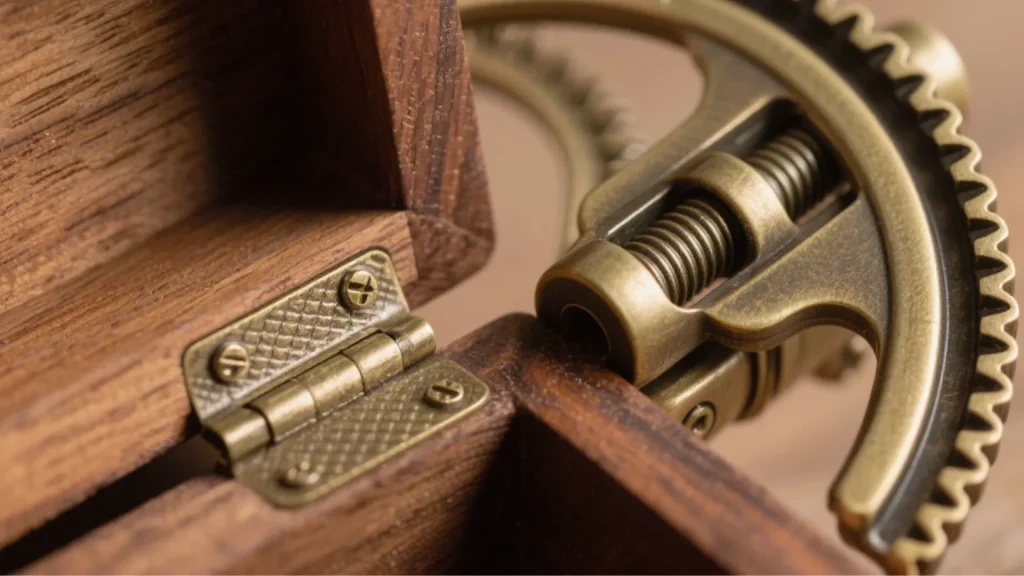
Avoid overwhelm by following this straightforward process to select the ideal hinge for your project.
Choose a hinge proportionate to your jewelry box. For small boxes, a hinge length roughly twice the thickness of the wood is a good rule. For heavier lids, verify the hinge’s maximum load capacity to ensure durability. As a general guide, the Safe Working Load for most small hinges is between 2 to 6 lbs (approx. 1 to 2.7 kg), so always check the product specifications.
Material impacts both aesthetics and longevity. Solid brass is the traditional choice, offering durability and a classic look. Brass-plated steel is more affordable but may wear over time. Finishes like antique brass, satin nickel, or oil-rubbed bronze can be tailored to match your hardware and style. Consider the wood’s tone: cooler finishes like nickel pair well with light woods like maple, while warmer tones like bronze complement darker woods like walnut.
Decide how you want your lid to behave. The needs will vary depending on how to choose the right jewelry box for the different types of jewelry you intend to store. Do you need it to open fully or stay at a specific angle? For lids that stay open automatically, consider quadrant or stop hinges. If a clean exterior is paramount, concealed hinges are preferable.
Be honest about your abilities and the tools you have available. Simple butt hinges are forgiving and can be installed with basic hand tools. Barrel and Soss hinges, on the other hand, demand a high degree of precision and may require specific jigs or a drill press to install successfully.
Precision installation elevates your craftsmanship. Follow these steps to ensure your hinges operate smoothly and invisibly.
Having the right tools is half the battle. For professional results, we recommend having a quality marking knife (not a pencil), a small combination square, a sharp chisel, and a self-centring drill bit (also known as a Vix bit). Depending on your chosen method, you may also need a palm router with a straight bit.
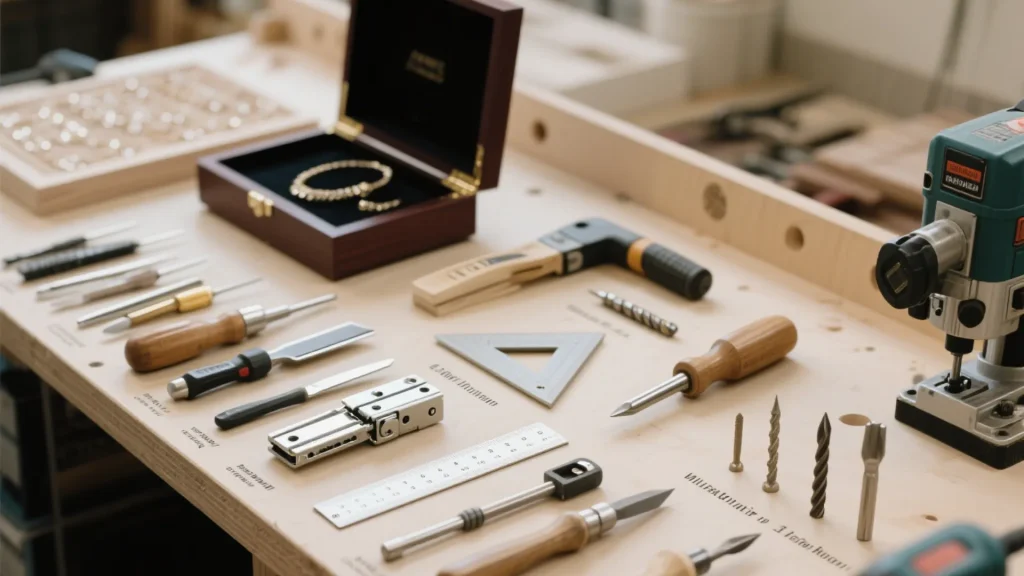
Start with precise measurements. Use your square to mark consistent hinge positions from the edges. Securely position the hinge and scribe its outline with a sharp knife—this creates a clean, accurate guide for mortising.
A proper mortise ensures the hinge sits flush. Here are three methods:
This method requires patience but offers immense satisfaction. After scribing the outline, use a sharp chisel to carefully remove the waste wood in thin shavings. Work from the edges toward the center, and constantly check the depth until the hinge leaf sits perfectly flush.
For speed and perfect, flat-bottomed mortises, a palm router is an excellent tool. Set the depth of the bit using the hinge leaf itself. Carefully guide the router to remove the bulk of the material inside your scribed lines, then use a chisel to square up the rounded corners.
For repeatable accuracy, especially if you’re making multiple boxes, you can build a simple jig for your router. The jig guides the router to cut a perfectly sized mortise in the exact same location every time. This is a more advanced technique, but it is invaluable for production work.
This is a step you must not skip. Brass screws are notoriously soft and will easily break if driven into hardwood without a pilot hole. A self-centring drill bit is a fantastic tool that ensures your pilot hole is perfectly centred in the hinge’s screw hole, which is critical for proper alignment.
To avoid breaking brass screws, first drive a steel screw of the same size into each pilot hole to cut the threads. Then, remove the steel screws and replace them with the final brass screws, driving them carefully by hand with a screwdriver that fits the slot perfectly. Attach the hinges to the box body first, then position the lid and attach it.
A truly exceptional jewelry box feels cohesive, and that means thinking about all the hardware, not just the hinges. The finish and style of your hinges should complement other metal components like latches, locks, or lid stays.
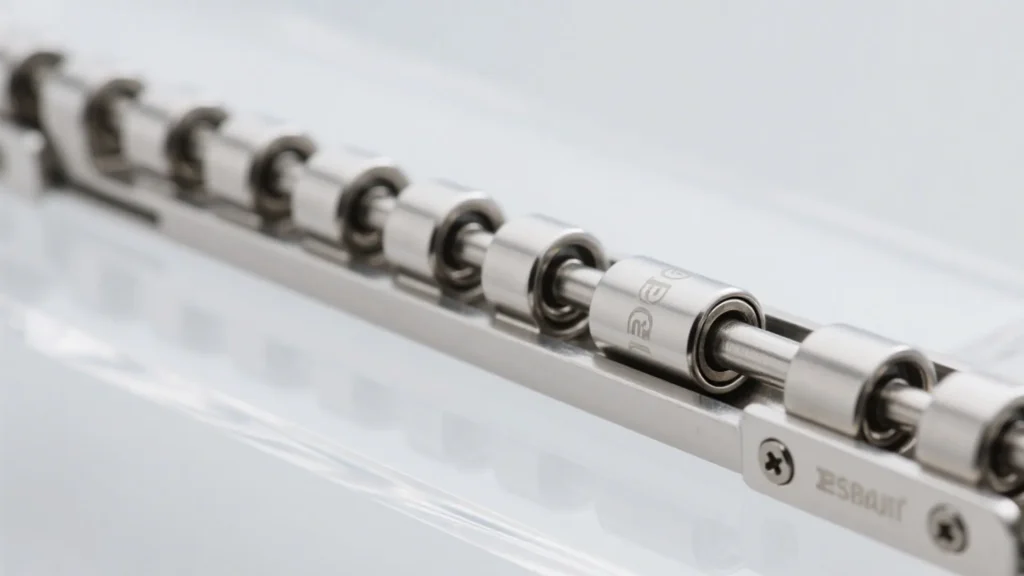
From simple hook latches for a rustic look to small keyed locks for added security, your choice of closure is critical. When selecting hinges, consider how they will pair with your chosen latch. For example, the classic look of solid brass butt hinges is often matched with an elegant brass hasp.
If you opt for simple butt hinges but still want to prevent the lid from falling backward, a separate lid stay is a great option. These can range from simple chains to elegant telescoping or folding stays, offering another opportunity to add a touch of class to your project.
Finding high-quality small hardware can be a challenge. Your options generally fall into three categories, each with its pros and cons.
Websites like Rockler, Lee Valley Tools, and Brusso Hardware offer an extensive selection of high-quality, solid brass hinges in various styles and sizes. These are the go-to sources for professional woodworkers and serious hobbyists looking for the best possible hardware. For firsthand feedback from fellow creators, community threads with Jewelry box hinge recommendations.
If you have a local woodworking store like Woodcraft, it’s a great place to see and feel the hardware in person. You can assess the quality and finish firsthand, and the staff can often offer expert advice. The selection might be smaller than online, but the hands-on experience is valuable.
A Word of Caution: For basic projects, you can find hinges at big-box stores and craft stores. However, the quality can be inconsistent. When shopping on these platforms, read reviews carefully, check the material specifications (look for “solid brass” over “brass-plated”), a be prepared that the selection of specialized hinges like quadrant or stop hinges will be very limited. This is also where you may run into issues with inconsistent stock; if you find a specific hinge is unavailable, turning to the specialty online retailers mentioned earlier is your best bet for finding a high-quality equivalent.
You are now equipped with the knowledge to select and install jewelry box hinges like a professional. Remember that the hinge is not just a mechanism; it’s a key part of the story your creation tells. It’s a testament to your patience, precision, and dedication to quality. From the satisfying weight of the lid to its flawless, silent movement, the right hardware transforms your work from a simple project into a piece of art. The perfect hardware is the finishing touch that elevates your craftsmanship from good to exceptional.
For jewelry brands, this commitment to detail is non-negotiable. When customers open your packaging, the hinges serve as a subtle yet powerful signature of your brand’s quality. Investing in high-quality hardware and ensuring uniformity across your product line demonstrates professionalism and builds trust. For brands looking to scale this level of quality across an entire product line, ensuring every customer unboxes a flawless experience, a strategic packaging partner can make all the difference. Explore our custom packaging solutions to see how we manage these critical details for you, turning every package into a testament to your brand’s excellence.
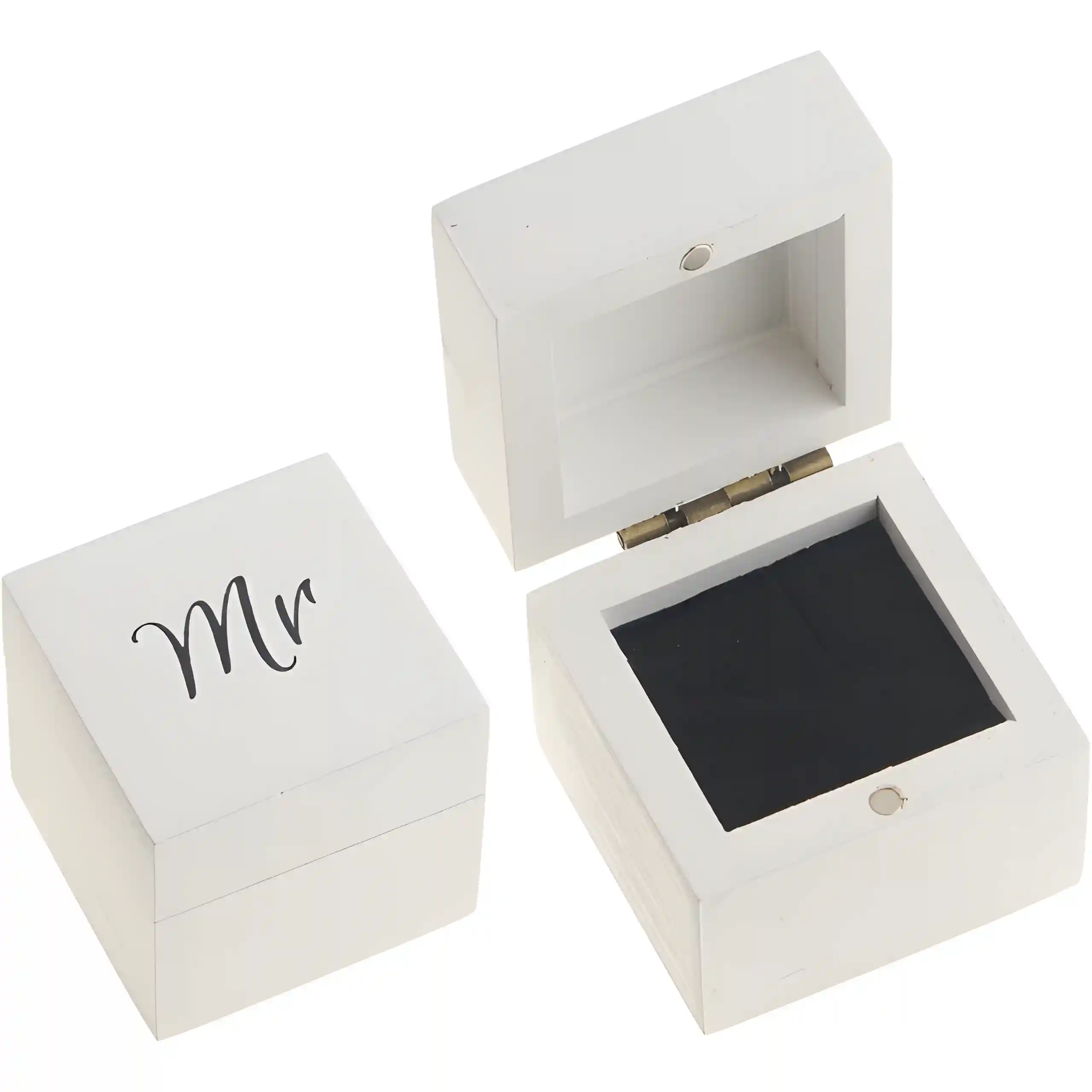
Wooden White Jewelry Boxes in Gloss or Matte Finish | Secure Closure, Custom Logo | Richpack Bulk Supply
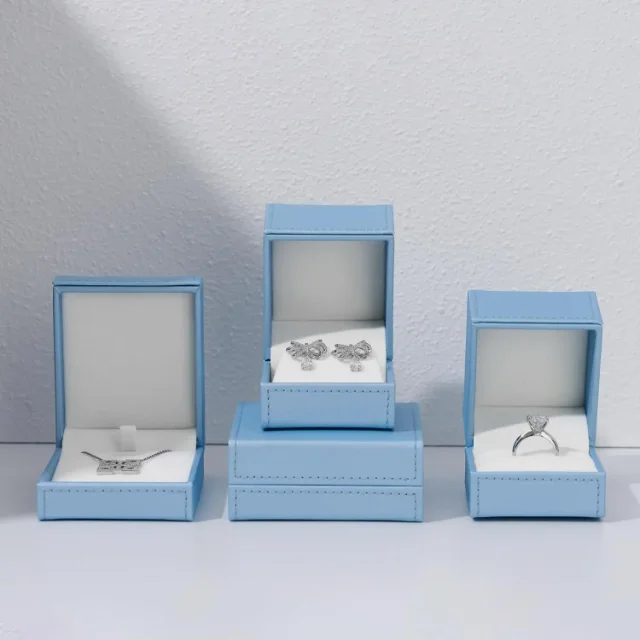
Mark and Graham Jewelry Box – Superior Craftsmanship, Elegant Style for Treasuring Your Treasures
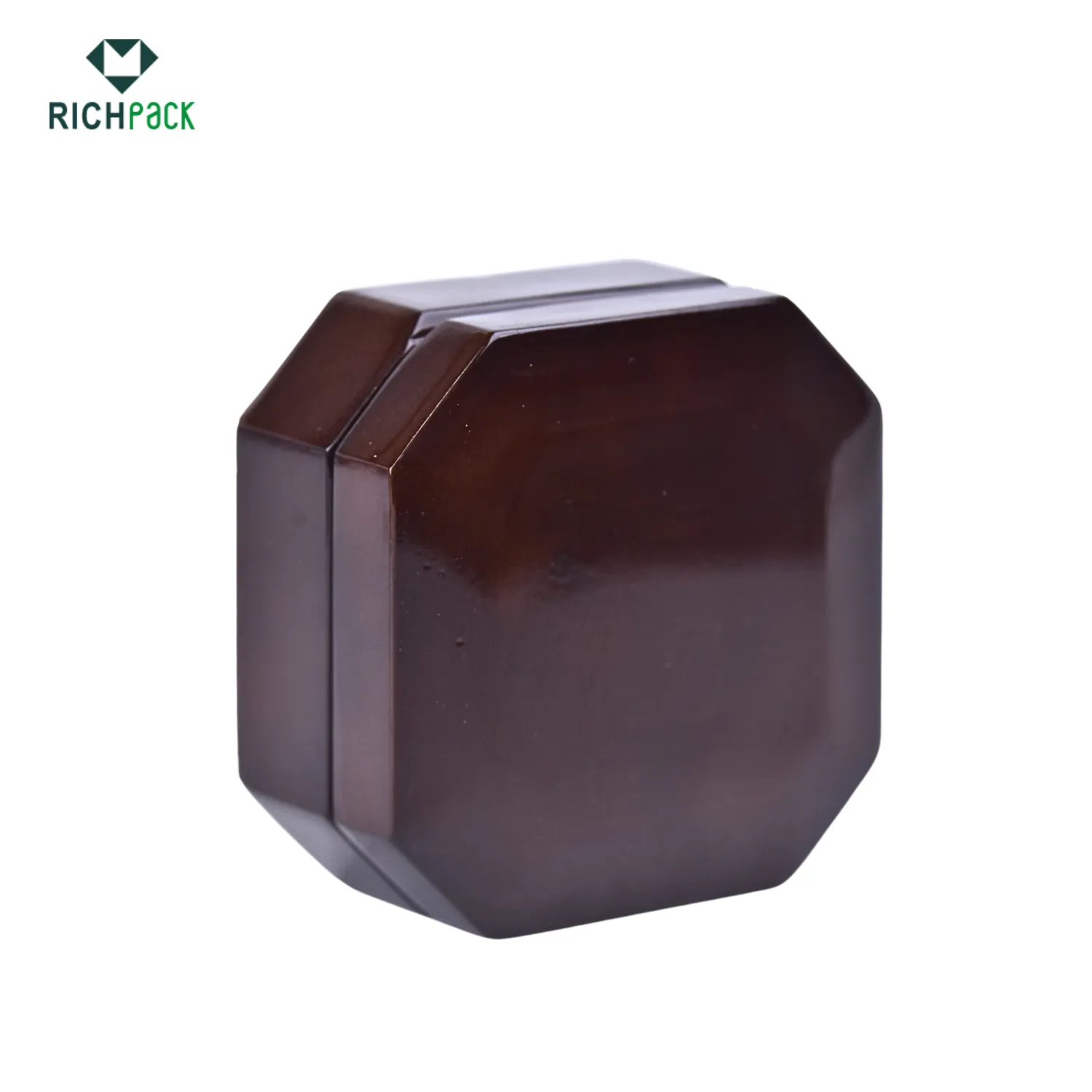
Handcrafted Wooden Jewelry Boxes with Metal Hinges | Durable and Elegant Jewelry Storage Solutions Customizable Colors Sizes from Richpack
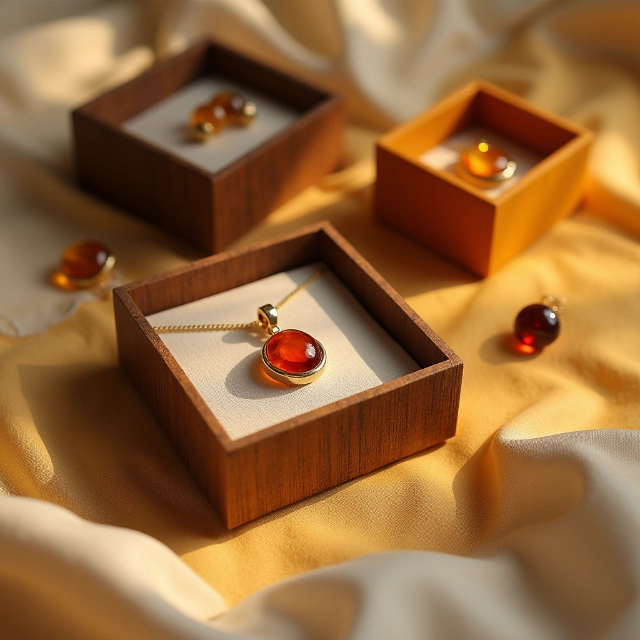
Amber Jewelry Packaging | Natural Elegance Meets Sustainable Packaging
View More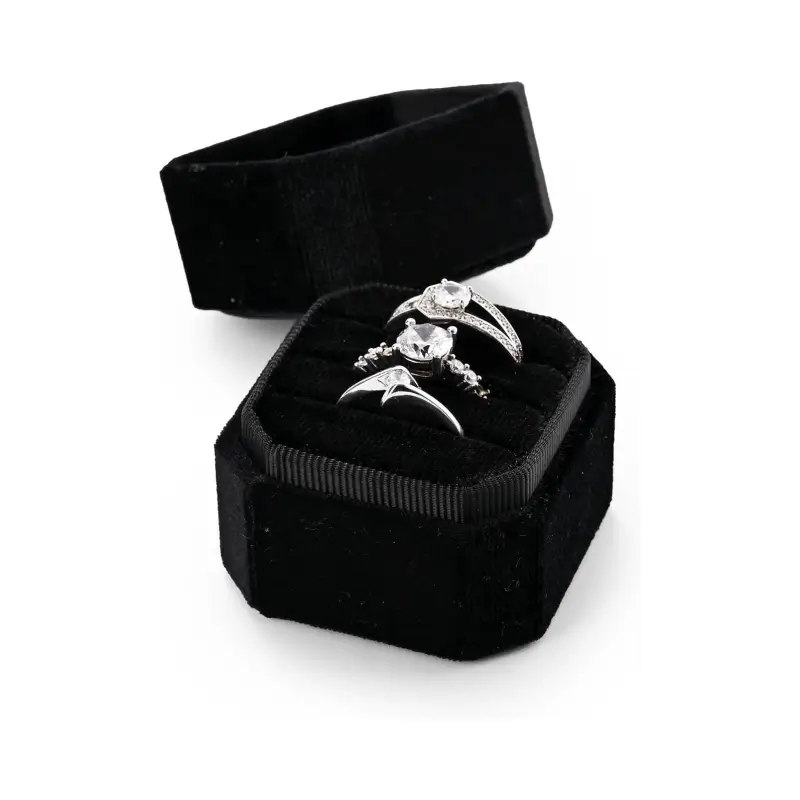
Sophisticated Black Velvet Ring Boxes | Luxurious Packaging for Engagements, Weddings, and Special Occasions Richpack Wholesale Supplier
View More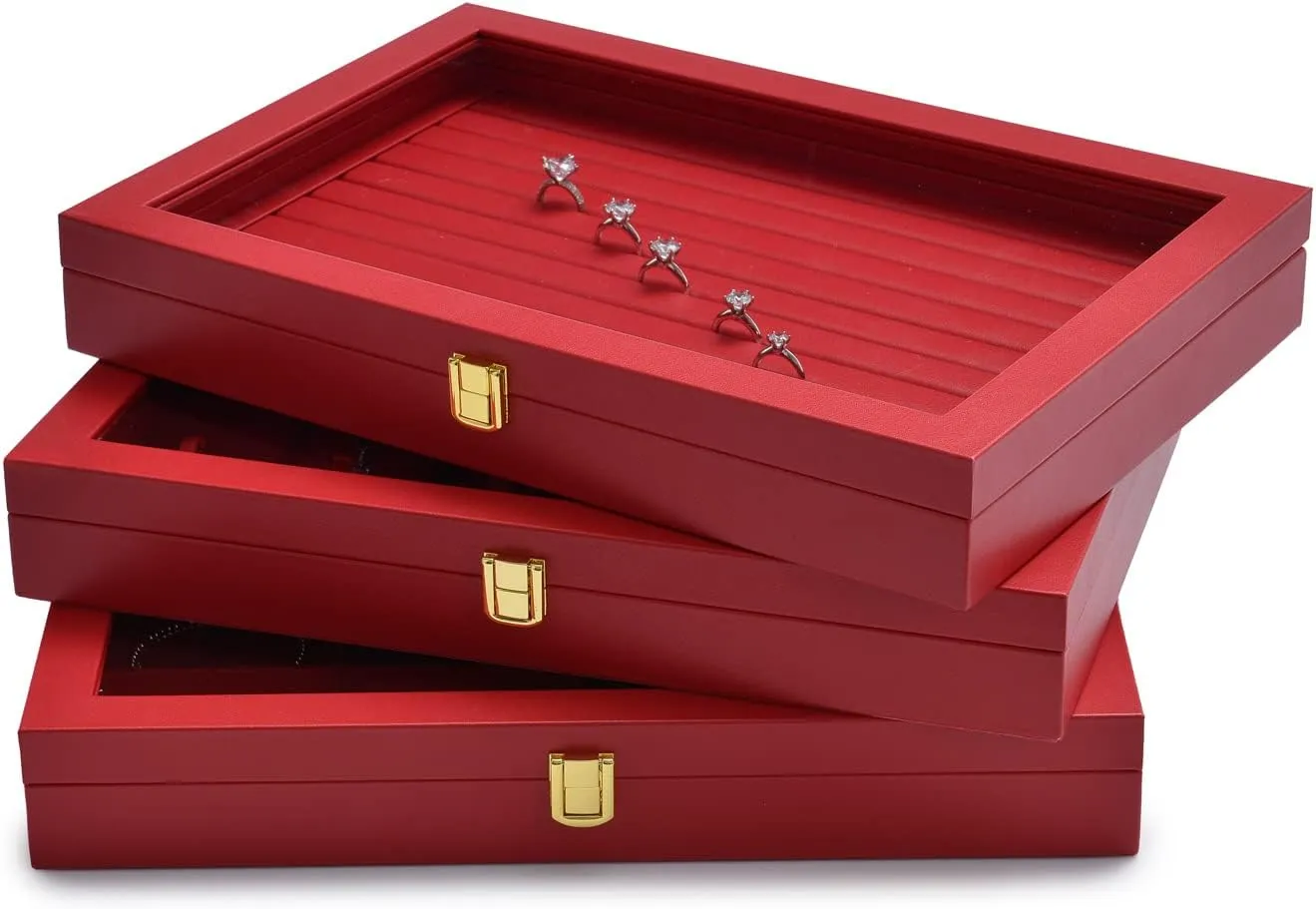
Striking Red Ring Boxes for Elegant Presentations | Perfect for Showcasing Engagement and Wedding Rings Private Label from Richpack
View MoreJust submit your email to get exclusive offers (reply within 12 hours)